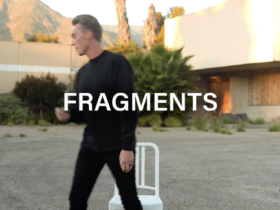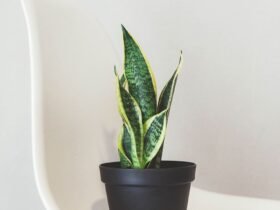I’ll never forget the day I discovered minimalism.
It was an otherwise typical Saturday morning. I was outside cleaning our garage while my young son played in the yard. My wife, Kim, was cleaning indoors while keeping an eye on our two-year old daughter.
We had decided to spend the day Spring Cleaning, hoping to bring some order to our chaotic home. Both projects—inside and out—ended up taking much longer than we had anticipated.
My neighbor, June, happened to be outside working in her yard while I plugged away at my garage. She noticed my frustration and struck up a chat. After listening to my complaints about the never-ending task of organizing and cleaning, she simply said, “You know, Joshua, that’s why my daughter is a minimalist. She keeps telling me I don’t need to own all this stuff.”
As soon as June introduced me to the word minimalism, I was hooked. I told Kim about our conversation and she also agreed it was worth pursuing. So that afternoon, I went online and started reading everything I could about minimalism. The more I learned, the more convinced I became that this was the change our family needed.
We began to apply minimalism to our lives gradually. Over the next several months and years, Kim and I would remove 60-70% of our things and eventually move into a smaller home.
As we minimized our stuff, we began to see profound changes in our lives. And I’ve heard about the same change in others as well.
Here are ten things we gain when we minimize our stuff:
1. Time and Money
One of the first and most noticeable benefits of minimalism was the increase in both time and money.
By reducing our possessions, we spend less time cleaning, organizing, and maintaining our home (also less time shopping). This frees up precious hours that we can spend together as a family or pursue activities we love.
Financially, we’re able to save a significant amount of money by removing unnecessary purchases, which allows us to get ahead financially, invest in experiences, or give more away.
2. Freedom to Pursue Our Passions
With fewer possessions to manage, we find the freedom to explore our passions more deeply. Whether it is writing, hobbies, traveling, volunteering, a career, or meeting with friends, minimalism provides the space and clarity to focus on what truly matters to us.
Everyone will define their passions differently. But minimalism brings the same result every time—more opportunity to pursue them.
3. A Deeper Understanding of Ourselves
Minimalism forces us to confront our values and priorities. As a friend said to me early in the process, “It seems to me that minimalism would force questions of values upon you.” He was definitely right.
But even more than that, minimalism helps us uncover unhealthy motivations in life. There are any number of reasons why we accumulate more stuff than we need—and very few of them are healthy. It’s not easy to learn difficult truths about the unhealthy motivations in our hearts, but we’re always better after doing it.
4. Bigger Dreams for Our Potential
Owning less allows us to dream bigger. Too many people (including myself for many years) define success in terms of financial goals or physical possessions. But our lives can be lived for things so much greater.
Once the pursuit of physical possessions is removed from our lives, we feel a renewed sense of possibility. We began to set higher goals for ourselves and our family, believing that we can achieve more with less holding us back and our focus undivided. Even better, minimalism not only opens the door to dreaming bigger dreams for our lives, it provides the space and freedom to begin realizing them.
5. Confidence and Courage to Live Differently
Living a minimalist lifestyle requires confidence and courage. It means going against the usual norms and expectations and external validations of success. As we experience the benefits of owning less, our confidence in our decision grows. Minimalism becomes about more than decluttering—it becomes about living a bigger life.
When we begin to see that, we also discover that there is a lot of joy to be found in living differently than the culture around us. This realization equips us to take courage in living differently.
6. Opportunity for Memorable Experiences
Minimalism opens the door to more memorable experiences for us and our family (if we have one).
With fewer possessions to distract us and more money in our pockets, we can focus on experiences and creating lasting memories with our loved ones. And these do not have to be expensive. They can be (depending how much money you save and feel good spending), but spending a lot of money is not required to create amazing memories.
7. A More Generous Heart
As we declutter our home and life, we become more aware of how much we have compared to others. Generosity is something most of us want to be true of ourselves—minimalism paves the way.
At first, we may donate our excess items to those in need. But long-term, the less we buy, the more we have to give. Minimalism will foster a spirit of financial generosity in your life and your family—displaying specifically that there is more joy to be found in giving than keeping.
8. Greater Intentionality in All Areas of Life
Minimalism sparks intentionality in every aspect of our lives—or at least, it provides the opportunity for that.
For me, I discovered that when I became more intentional in the physical possessions that I kept, I began to notice other areas where intentionality was beneficial: diet, health, calendar, work, relationships.
Intentionality in one area of life (possessions) sparks intentionality in other areas of life.
9. A Fuller, Richer View of Spirituality
Personally speaking, minimalism enriched my spiritual life in ways I didn’t expect. Almost every reader of this article will define spirituality differently. But regardless of how you define it, once you begin to remove a passion for the things of the world, you open your heart and soul and spirit to focus and grow elsewhere.
10. A More Skeptical View of the Culture’s Empty Promises
Finally, minimalism gives us a more critical perspective on culture’s empty promises. At the heart of every advertisement is the message that we’ll be happier and better off if we buy the product they are selling. But human beings have never owned as much stuff as they do—and overall happiness is not increasing.
Corporations and Madison Avenue have a financial interest in promising us a better life through the products they sell. Minimalism begins to expose those promises for what they are—empty.
Does this mean that no product will ever improve our lives? Of course not. But once we begin to experience the joy available to us when we own less, we become more discerning to the tactics they use to stir up discontent in our lives.
Minimalism, at the beginning, was just about a decision to own less stuff. But we quickly realized it was much bigger than that as we began to reflect on all the things we gain when we minimize our possessions.
You will discover them too.

















Leave a Reply